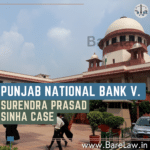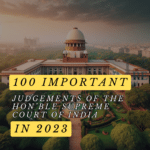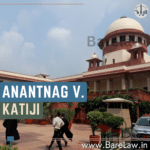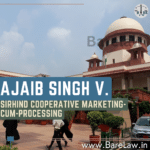Case Brief on
Indra Sawhney v. Union of India AIR 1993 SC 477
PRIMARY DETAILS OF THE CASE:

Know About Case Brief on Indra Sawhney v. Union of India AIR 1993 SC 477
Introduction:
The Mandal Commission case is one of the most important cases we have come across in the field of constitutional law. This was also contested recently in the Maratha reservation case, 2021 and many petitions were filed for this precedent to be scrapped. Indra Sawhney’s historical case is explained here, which has been abused sometimes and criticized for becoming a political tool when parties use it as their vote bank.
Facts of the case:
On 19th January 1953 , a commission was set up by the then Union government under article 340 of Indian Constitution to fulfill what were asked under article 16 of Indian constitution. It was referred to as Kaka Kalelkar Commission. Nonetheless, even though this commission submitted its report on criteria for reservation purpose by identifying proper criteria for identification of backward classes under article 15, it did not fully satisfy its approach towards this goal. Since back in the year 1971, Union government appointed second Backward Class Commission as per Article 340 of the constitution to look into existing circumstances with respect to socially and educationally backward classes in India. BP Mandal led this commission commonly called Mandal commission. One important term that defined these commissions was within social description who are back ward class and steps that will help these groups develop after being identified. In its report released on 1980, these are around 3,743 categories which were classified as backwardness with a recommendation reserve of about twenty seven percent (27%). An executive order was issued in the same year and implemented recommedation too which has been carried out so far till now. The petitioner challenged this “reservation” against various states including him challenging against his own state claiming that it violated his fundamental rights . The issues that followed from framing by special bench consisting nine judges are given below.
Issues framed:
Now let us see four major questions among many others framed by supreme court India: they include,
Should the society’s ‘creamy layer’ be excluded from the existing 27% reservation meant for backward classes?
Is it only in respect of initial appointment or direct recruitment that quota is allowed for by reservation under Article 16(4) of Indian Constitution or does it include promotions?
Can reservation to backward classes be determined solely on grounds of caste?
Lastly, whether exceptional circumstances can justify exceeding the limit of 50% or not.
Laws involved:
Article 340 of the Indian Constitution
Article 16(1) and (4) of the Indian Constitution
Contentions:
According to counsel appearing for respondent.
It has been indicated that article 16(4) allows for reservation of jobs in favour of the backward class of citizens rather than backward citizens. He pointed out that there is no need to know all those who are falling in this category, it is good enough to single out few persons whose social status can be labeled as ‘backward’. According to him, groups can be divided on some homogeneous element such as religion, race etc., and if they are found to be backward then the reservation should be applied there.
He also argued that caste may constitute a relevant factor and sometimes it could even assume the role of a determinative one. It was also observed that states have identified people on the basis of this very characteristic alone so they must be protected by this court.
Finally, he relied upon article 16(2) and contended that it prohibits discrimination only on the grounds mentioned therein and a provision which is meant for protective discrimination along with relevance factor shall not fall under the prohibitions contained in the section or attract bar mentioned therein.
Decision:
Firstly, regarding whether or not creamy layer should be excluded from reservations, it noted if we call any group as a class there must be some elements which have to common among them. In case of backward class as a group what attaches them together is their social backwardness. However where there is another element other than social advances then he will not share any common thread with his lower castes folks thus holding him disjointed from them. Consequently exclusion of such persons would make possible real benefit intended for such classes which are really poor. As explanation court gave an example how cream layer should be excluded.In todays scenario suppose members belonging IAS & IPS services has given opportunity under reservation being socially backward by birth but as soon he goes up in hierarchy he can’t claim himself anymore socially disadvantaged wherefore his children shouldn’t qualify at least they don’t belong SCs/STs hence now this exclusion alone would bring a class under the ambit of backward class and definitely serve purpose as referred in article 16(4).
Secondly, the court found that reservation for promotions was not intended by article 16 of the Indian Constitution, but only for initial appointments. It made clear that this decision should be applied only to future cases not the past ones so those earlier promotions based on these ground will not be affected. The court also held that if it shall think fit to include the reservation relating to direct recruitment and promotion, then they shall be made by representation for promoting the same end in view under article 16(4) of Indian constitution.
Another pertinent question answered by the court was whether caste can only be a single factor or not. With regards to this, it is said that caste will not be the sole test for the purpose of identifying socially and educationally backward classes under Article 16(4). That is important here is that the determination should not be governed by caste as a dominant factor, but in regard to unusual cases where there is under-representation, then such reservations may again become relevant.
Finally, it was pointed out that unless there is an extraordinary case which necessitates raising of reservation beyond 50%, the limit imposed by previous decisions could not be breached.





